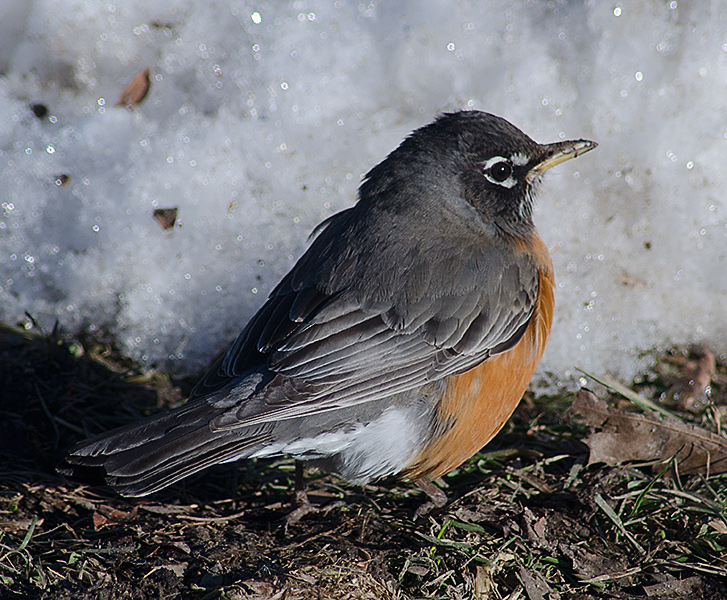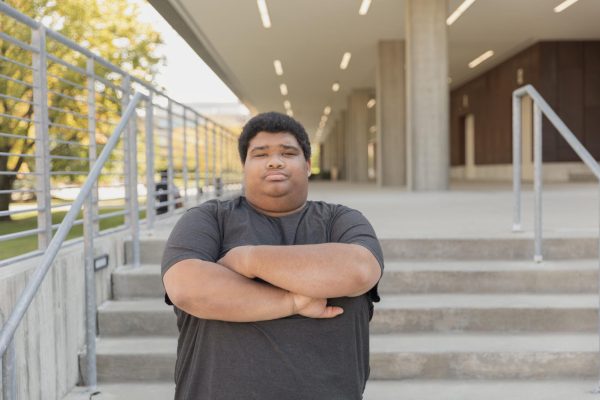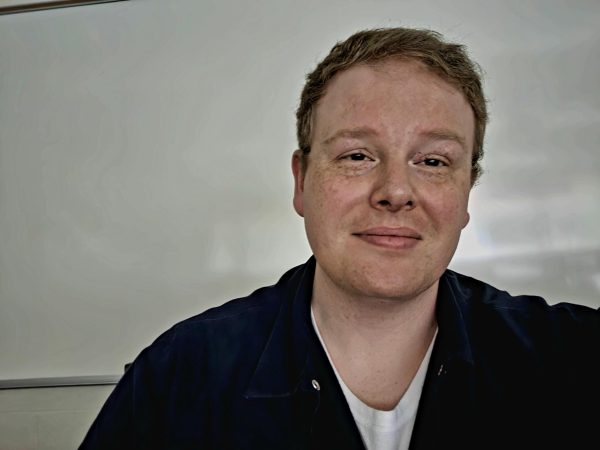Letter to the editor: Resource vs. Relationship
As I reflect on the year that has just ended, I find that three of the proudest moments in my time at OU happened in 2022.
First: In April, the university put action behind the 2021 Native American Land Acknowledgment when a one-acre portion of campus land was rematriated for Native American educational, community, and ceremonial use—the first action of this kind at a university in the United States. It is a small but important step in pushing back against centuries of the genocide, dispossession, and attempted cultural erasure of Native Americans. You can read more about it here:
Second: Also in April, the biological preserve was celebrated and promoted in a video called “The Living Classroom”
[https://youtu.be/jrsfJaSEnMA], created by Sarah Griffith and Jon-Paul Bakaric. So many students, faculty, and staff never know about the biological preserve or visit it in their time here, and the university has done little to celebrate, promote, and protect it. Seeing this video gave me some hope that this is changing.
Third: In October, at the kickoff talk for “Sustainability Month,” students showed up with signs to protest the proposed East Campus “Development.” The role of protesting reckless overdevelopment is such an important one, and I was so proud to see students taking it up. Student Congress then created a petition which garnered over 4,000 signatures, and people from across campus and our community wrote letters to the Oakland Post and OU decision-makers, spoke out in meetings, and demanded more than business-as-usual.
These three moments connect me to a sense of Place–of where exactly we are situated on the planet. Universities do not exist in the void. They are here, on Planet Earth. The way a university treats the land it inhabits reflects its view of the sacredness of that land. Too often OU has acted in ways that show it cares little for the ecosystems around it. As Prof. Jeffrey Insko said to the Board of Trustees in a recent meeting, we must “[let] go of some old ways of thinking and acting, like unlearning the ideas that land is a resource that exists to be used, that economic development is progress, and that unending growth is desirable or even good.” This is not about resources; it is about relationships.
Now we are greeted in the new year with the news that the Board of Trustees and OU administrators have “suspended formal consideration of development options.” I cannot tell you how happy this makes me. I am so proud of what the students, faculty, and staff have accomplished, and those of the future will be too.
But of course the work continues. We must keep pushing back against overdevelopment. In doing so, we join a proud tradition of OU students, faculty, and staff whose voices have risen in protest in the past. To take one example: In the 1970s, an OU biology student named Tim Smart worked tirelessly to protect a parcel of land on the Clinton River just a mile and a half from campus, and thanks to his efforts, the Avon Nature Study Area still exists today at the corner of Avon and Livernois Road. It is thinking and action like this and like the movement to stop the misuse of east campus that we will need more of as we enter an age of ecological crisis. We will need to protest, to write letters, to think outside the box about our relationship to land. If the trustees and administrators forget about the sacredness of Place, we will be here to remind them.
There are plenty of other ways for us to treat this land with respect. Think of the rematriation project or the living classroom examples above. Why not formally set aside OU land for education? Why not work to create educational materials that celebrate the Indigenous history and natural wonders of this place? Why not work to honor what is around us every day? One of my most cherished possessions is a list of the trees on campus–including their species names and locations–given to me by a kind groundskeeper after we enthused about our favorite trees together. I hope in the near future resources like this will be readily available to everyone on campus. Is it possible for us to learn appreciation and respect as a community? If we want to be a “model for other universities,” let us do so by caring for the land around us. Let us do so by working between departments and disciplines, faculty and facilitators, students and staff, to shift our values from extraction to preservation, from focusing on “resources” to honoring the sacredness of relationship.
We are not just at “Oakland University.” We are on the traditional and ancestral lands of the Anishinaabe people. We are on the Clinton River watershed, amidst deciduous oak woodlands and rolling hills, marshes and vernal ponds. We are in the land of the killdeer and the turkey vulture, the red fox and the white-tailed deer, the blue mud dauber and the ebony jewelwing.
What sort of relationship will Oakland University have with this land that allows it to exist?











Tim Smart • Jan 26, 2023 at 2:04 PM
I must take issue with Yousef’s dark vision of humanity. Rather than consign myself to a dog-eat-dog world, I believe–as Dean Masters does–that people and societies can evolve just as nature does. If we don’t, we’re all doomed to perish as a species in a suicidal seventh mass extinction. A brighter, necessary viewpoint requires us to take stock of past and present relationships and embrace the best ideas–such as replacing land use and resource ownership based on greed and power, with circular economies and egalitarian principles. Dean’s purpose is not to denigrate past practices, but to improve upon them. Surely we possess agency over our future. While Yousef is correct that we are not responsible for our ancestors’ actions, we are indubitably responsible for ensuring that the worst of human history is not repeated or perpetuated. After a mass shooting, do we simply resign ourselves to the fact that human nature is irrevocably evil, or should we strive mindfully and energetically to understand root causes and develop strategies to prevent such tragedies? Dean Masters’ vision of the world is clear-eyed, compassionate, and essential. He writes eloquently of forging a new pact between nature and humankind, a movement spearheaded by forward-thinking educational institutions such as Oakland University, and buoyed onward by dedicated, sanguine individuals willing to work for a surpassing and lasting tomorrow.
yousef • Jan 16, 2023 at 4:23 PM
OP dont censor my comment.
Dean Masters,
what exactly makes land sacred? please elaborate.
Land acknowledgments are nothing but sweet nothings we whisper to ourselves at night to help us sleep. Humans have been brutally killing for and seizing land between people groups for tens of thousands of years (including Americans prior to European settlers). The only reason we have it in our possession now is we have the force to defend it. Those who were occupying it prior to the European settlers were at a substantial biological and technological disadvantage to them and died as a result. We or they are no better or worse than anyone else who seizes land from another.
Stop with the petty virtue signaling. You are not culpable for your ancestors actions.